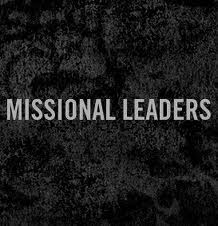 In Luke 11:37-41 Jesus is addressing a crowd of people when a Pharisee invites him to dinner. The Pharisees were religious leaders in Israel that sometimes also served as politicians and social guardians within Jewish society. At this point in the narrative the Pharisees were already bent on trying to discredit and destroy Jesus over perceived violations of the Jewish Sabbath. They were questioning his authority. But Jesus accepts this particular Pharisee’s dinner invitation. Upon reclining at the dinner table, the Pharisee is appalled that Jesus did not first wash before dinner. This was not just an issue of clean hands to be germ free before a meal. This was a religious legal issue of being ceremoniously clean. This was a Pharisaical rule, not one derived from the Old Testament Law. Jesus responds with two observations and a command.
In Luke 11:37-41 Jesus is addressing a crowd of people when a Pharisee invites him to dinner. The Pharisees were religious leaders in Israel that sometimes also served as politicians and social guardians within Jewish society. At this point in the narrative the Pharisees were already bent on trying to discredit and destroy Jesus over perceived violations of the Jewish Sabbath. They were questioning his authority. But Jesus accepts this particular Pharisee’s dinner invitation. Upon reclining at the dinner table, the Pharisee is appalled that Jesus did not first wash before dinner. This was not just an issue of clean hands to be germ free before a meal. This was a religious legal issue of being ceremoniously clean. This was a Pharisaical rule, not one derived from the Old Testament Law. Jesus responds with two observations and a command.
First, Jesus makes an indicting observation that the Pharisees in general pay close attention to ensuring that utensils are kept ceremoniously clean but are unconcerned about the issues of the heart. Jesus notes that the condition of their heart was one of greed and wickedness.
Second, Jesus goes on to declare them foolish and to remind them that the one who made the outside made the inside. The condemnation of being foolish reveals that the Pharisees in general were ungodly and full of false piety. The emphasis is on the fact that God is the maker of both the outside and the inside and therefore equal weight must be given to cleansing both.
Finally, Jesus commands the Pharisee to give alms as a way of gaining cleansing. But this is not works righteousness. Jesus is using a ritual activity the Pharisees knew well, the giving of alms. But he places a twist on it by stating that the alms they must give are on the inside. The notion is that they should give up their greed and avarice and they will be clean. Cleansing is always an inside issue, an issue of the heart.
The problem with spiritual leaders is that we can look clean for quite awhile. We can say the right things, do the right things, be regarded as righteous and worthy. But inside there is greed, covetousness, and the desire for all forms of gain. It will show up eventually. It usually shows up in the form of pride and legalism. And people begin to feel it.
The Pharisees were often accused of being hypocrites. Today our society has looked at the Christian faith and given us the same label. When we over emphasize external behaviors as markers of holiness and disregard the heart we set the stage for hypocrisy. Jesus was placing an emphasis on inward cleansing. If the inside is clean then you are clean.
Here are three questions for us as leaders to help make application to our lives:
1. What external markers of righteousness are you holding others to that may not match Scripture?
2. How is your heart? Are there forms of greed lurking there? Do you covet some other leader’s ministry, fame, or success? What are you counting as gain?
3. Are you willing to confess those attitudes, repent, and give them away to the grace of the gospel for inward cleansing?
King David once prayed, Create in me in a clean heart, O God, and renew a right spirit within me.
May that be our prayer today. Lead well!









